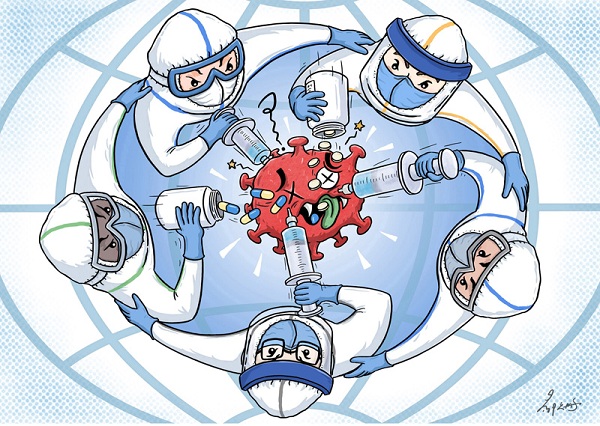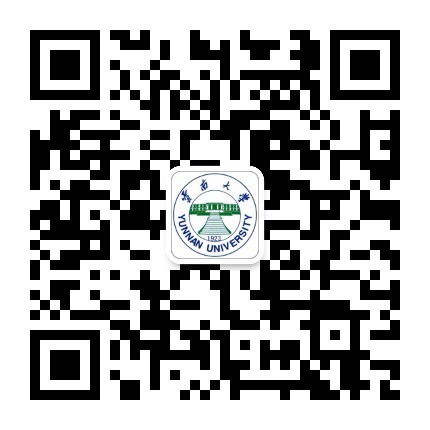Small acts of kindness key to surviving COVID-19
Editor's Note:
Since the outbreak of COVID-19, governments across the world have taken strict measures to prevent the spread of the virus. Everyone's life has changed dramatically due to the pandemic, and we still don't know when we will finally defeat the invisible enemy. However, life moves on. In our series "My story of fighting COVID-19", we will share stories from our readers on how they are fighting against COVID-19 in their daily life. We hope these stories will inspire you.

No one expected the coronavirus to hit as hard as it did. With the number of infected people increasing rapidly, even now we see no end in sight.
For over a year I had planned a trip to chase the Northern Lights in Norway. So when the time came to make a choice, I didn't want to abandon this once-in-a-lifetime experience. We were going no matter what.
During the COVID-19 epidemic in Thailand in March, everyone wanted me to cancel my trip, but at that time the situation wasn't as serious in Norway and Sweden. I still wanted to stock up on disinfectants and masks, just to be safe.
At the top of the world, on the northernmost part of the Arctic, our dreams came true — we saw aurora borealis brightening up the skies. While experiencing this truly wonderful moment, the situation quickly turned worse elsewhere, and the outbreak started to hit Norway badly.
After just five days, almost a thousand people were confirmed to be infected, and so the Norwegian government announced it would close its borders and implement heavy social distancing. During our road trip to Lofoten, we saw society change before our eyes. Social distancing was being applied in all restaurants, with tables set for a maximum of two people, and bottles of hand sanitizer popped up seemingly overnight. We got an email from the hotel explaining that due to government policy, they would refund bookings from March 13 onwards. We were lucky enough to have a place to stay, as we entered Lofoten on March 12. During our stay, all restaurants were closed so we could only go to the supermarket for food.
We realized the situation was getting worse, so we checked a government website and found out they would shut down the border and airport and force the tourists to leave the country by March 16. The reaction of the government was very fast, but I noticed people were still not aware they should wear masks, which of course is very different from Asia.
Norway started to feel more hostile towards tourists, so we decided to reschedule our flight back to Sweden as early as we could. The Swedish government hadn't reacted as strongly as the Norwegians had, and people still lived life as normal. It was like we entered a totally different world. Now we needed to find our way back home before Thailand closed its borders. Our current airline wasn't very flexible in rescheduling tickets, either. We ended up buying new tickets with Thai Airways instead and felt we were finally going home
When I reached Thailand, there was no quarantine policy yet, so I could go home and quarantine myself voluntarily for 14 days living on takeout. At the same time my older brother had to move out and rent a condo temporarily. During this time, my friend told me CP gave away frozen food for free to those in quarantine, so I registered and submitted some evidence of my travels and they sent me food which was enough for 14 days. I was very thankful and thought this would be the beginning of sharing we would see continually during this crisis.
After quarantine for 14 days, I didn't feel well so I went to a hospital for a COVID-19 checkup wearing mask, gloves and carrying plenty of hand sanitizer. I told the taxi driver before getting in that I would go to a hospital for a COVID-19 checkup, but he still accepted me with no concerns. At the end of our ride, he was willing to wait until I finished the checkup. I told him it would waste his time and he would lose other passengers. He replied that there was no guarantee he will get passengers if he didn't wait for me, but he could at least be certain to make the return trip if he waited.
Sharing seems to be the best way to help each other through this rough time. People who aren't in trouble can make donations and join the "Pantry of Sharing" government project, putting a pantry in front of their houses or villages to share necessary things such as food and drink. This is a small thing everyone can do.
So things are not always as bad as they seem, but it will be even better if we help and support each other. Small acts of kindness may have a huge impact for those who really need it.
The author is a student at Mahidol University in Thailand.
The article was provided by South and Southeast Asian University Network. The opinions expressed here are those of the writer and do not necessarily represent the views of China Daily and China Daily website.




